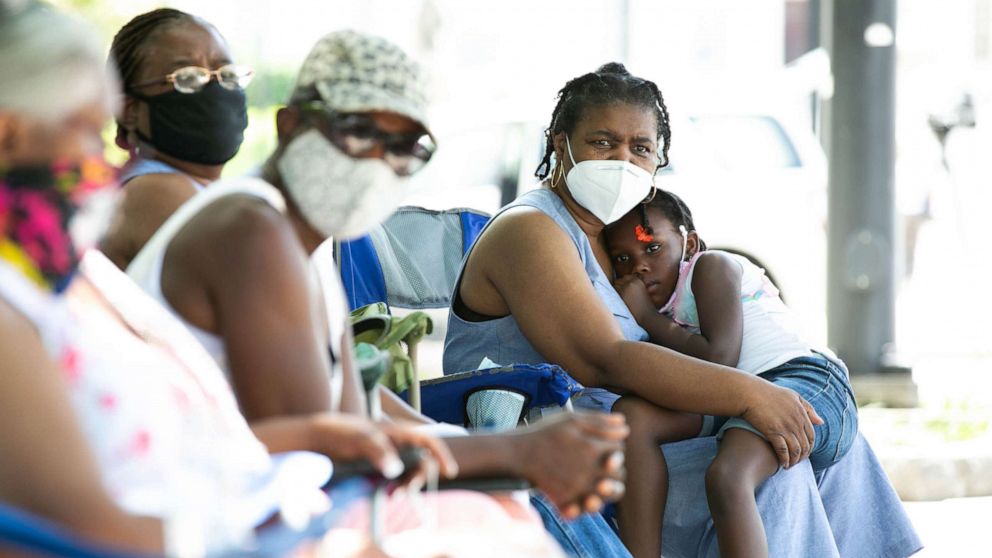3 Things to Consider About COVID-19 Vaccines for Children

Children as young as 5-years-old will soon be eligible for vaccination against COVID-19, the virus accounting for more than five million global deaths in less than two years of the pandemic.
The United States is the country with the highest amount of lives lost at 745,000.
While children under 17 have been less likely to suffer serious illness from contracting COVID-19, more than 6.4 million children have tested positive.
Quick Facts about Children and COVID-19
Source: Food and Drug Administration
- Children between the ages of 5 and 11 make up 39 percent of overall COVID-19 cases
- There have been 4,300 people under age 18 hospitalized with the virus
- There have been 691 COVID-19-related deaths in children under 18, and 146 of these were in the 5-11 age group
During July and August, children between the ages of 0 and 4 were up to 10 times more likely to be hospitalized with COVID-19. This coincides with the circulation of the highly transmissible Delta variant, when the country saw an uptick in Black children dying from COVID.
While COVID-19 cases dropped in the first half of 2021, they spiked again with the rise of the Delta variant.
In this same timeframe, hospitalization rates were also 10 times higher for unvaccinated adolescents compared to fully vaccinated adolescents.
With the vaccine now available for children under 12, how vaccine coverage will or won’t expand is in the hands of parents. And reports show that Black Americans are behind in COVID-19 vaccinations.
With 28 million American children soon to be eligible for the shot, a recent poll revealed 30 percent of parents are unwilling to vaccinate their child against COVID-19.
And like many other vaccines, most parents are going to have questions.
Here are a few things to consider before vaccinating your child against this coronavirus:
Side Effects, Vaccine Safety and Effectiveness
The Food and Drug Administration authorized the Pfizer-BioNTech COVID-19 vaccine for children between the ages of 5 and 11 at the end of October; children 12 and up have already been eligible.
The FDA reported that 3,100 children between the ages of 5 and 11 were involved in the ongoing Pfizer vaccine safety study, and they showed no serious side effects.
The two-dose Pfizer vaccine for children was found to be 90.7 percent effective.
Moderna plans to submit its vaccine study for children 6 and up to world agencies; the company found a strong antibody response was produced by its two 50-microgram doses, which is half of what adults received.
As for the Moderna vaccine for children between the ages of 12 and 17, the FDA will investigate further before it warrants approval. There have been claims of a rare side effect called myocarditis — inflammation of the heart tissue — linked to those who have taken this vaccine.
The FDA ran a risk-benefit analysis which addresses myocarditis outlined here.
Common COVID-19 vaccine side effects include injection-site pain, fatigue, headache, nausea and vomiting, swelling and tenderness, fever and rash.
There are also no live viruses in the COVID-19 vaccines that have been developed, so they cannot give the recipient the coronavirus.
Which Vaccine to Choose and Where to Get It
Companies Moderna and Pfizer-BioNTech have studied and developed COVID-19 vaccinations in children under 12. The Pfizer shot has been approved by the FDA and could soon start rolling out.
With FDA clearing kid-sized doses, major pharmacies such as CVS and Walgreens could be ready to provide the vaccines to young children once approved. President Joe Biden’s administration plans to make it easily accessible in pediatrician offices and schools, too.
Risks and Benefits of COVID-19 Vaccination
While children have overall been less affected physically by COVID-19, they can still spread the virus if contracted.
Children have also been burdened by the social and emotional pitfalls caused by the ongoing pandemic. Many have missed out on school and much-needed social interactions. Several thousands more have lost a parent or caregiver to COVID-19.
Expanding vaccine coverage can help cut down on transmission and get the virus under control.
Doctors have an overwhelming amount of data to support the benefits far outweighing the rare risks.
It is helpful to do you own sufficient and credible research, and follow updates about COVID-19 vaccines when making your consideration.
The Centers for Disease Control and Prevention’s Advisory Committee on Immunization Practices will meet on Tuesday and Wednesday to discuss the vaccine for children under 12 among other useful immunization updates for the season.
